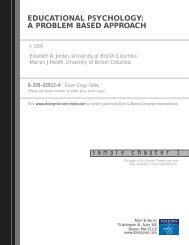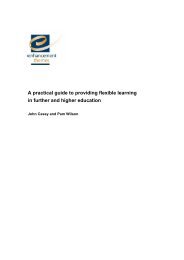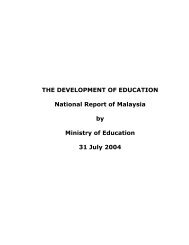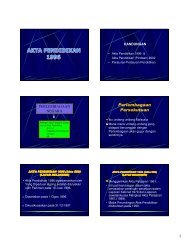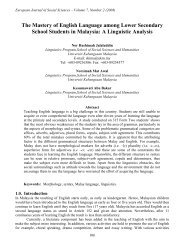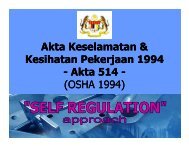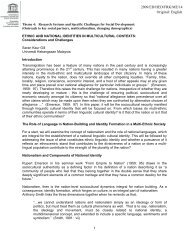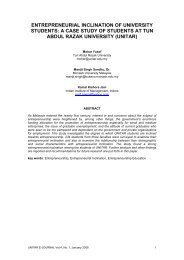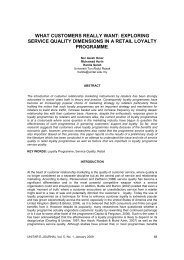An Analysis of Islamic Ethics in Small and Medium Enterprises (SMEs)
An Analysis of Islamic Ethics in Small and Medium Enterprises (SMEs)
An Analysis of Islamic Ethics in Small and Medium Enterprises (SMEs)
Create successful ePaper yourself
Turn your PDF publications into a flip-book with our unique Google optimized e-Paper software.
S<strong>in</strong>cerity (Ikhlas)S<strong>in</strong>cerity is generally understood to be truth <strong>in</strong> word <strong>and</strong> act. S<strong>in</strong>cerity also can be def<strong>in</strong>ed as thequality or state <strong>of</strong> be<strong>in</strong>g s<strong>in</strong>cere; honesty <strong>of</strong> m<strong>in</strong>d or <strong>in</strong>tention; freedom from simulation, hypocrisy,disguise, or false pretense; s<strong>in</strong>cereness. Islam has emphasized this code <strong>of</strong> ethics as we see <strong>in</strong>Quran <strong>and</strong> Hadith. Allah says,“So woe to the worshippers, Who are neglectful <strong>of</strong> their Prayers, Those who (wantbut) to be seen (<strong>of</strong> men), But refuse (to supply) (even) neighbourly needs.” (107: 4- 7)“<strong>An</strong>d they have been comm<strong>and</strong>ed no more than this: to worship Allah, <strong>of</strong>fer<strong>in</strong>g Hims<strong>in</strong>cere devotion, be<strong>in</strong>g True (<strong>in</strong> faith); to establish regular Prayer; <strong>and</strong> to practiceregular Charity; <strong>and</strong> that is the Religion right <strong>and</strong> Straight.” (98: 5)The follow<strong>in</strong>g is a selection <strong>of</strong> Hadith as regards to s<strong>in</strong>cerity:“The Prophet (p.b.u.h) said <strong>in</strong> relation to s<strong>in</strong>cerity: “Allah does not look to your bodies,to your faces, but He looks to your hearts <strong>and</strong> your deeds.”The Prophet (p.b.u.h) said: “Actions are but <strong>in</strong>tention <strong>and</strong> every man shall have butwhich he <strong>in</strong>tended. Thus he whose migration was for Allah <strong>and</strong> His messenger, <strong>and</strong>he whose migration was to achieve some worldly benefit or take some woman <strong>in</strong>marriage, his migration was for that for which he migrated.”The Prophet (p.b.u.h) also the mentioned that religion is s<strong>in</strong>cerity! We said: To whom?He said: To Allah, <strong>and</strong> his Book <strong>and</strong> His messenger <strong>and</strong> to the leaders <strong>of</strong> theMuslims <strong>and</strong> common folk.”Therefore, Islam attaches great importance to the s<strong>in</strong>cerity <strong>of</strong> <strong>in</strong>tentions <strong>and</strong> actions <strong>in</strong> every walk<strong>of</strong> life. The performance <strong>of</strong> duties requires that all <strong>in</strong>dividuals <strong>in</strong> SME companies work withs<strong>in</strong>cerity <strong>and</strong> fidelity. Two benefits can be produced by <strong>in</strong>still<strong>in</strong>g the s<strong>in</strong>cerity <strong>in</strong> the bus<strong>in</strong>essdeals. First, it helps to improve the workers’ efficiency <strong>of</strong> job implementation. Second, the s<strong>in</strong>ceworkers are able to contribute to the high rate <strong>of</strong> productivity by speed<strong>in</strong>g up the productions. Inaddition, such ethical code also discourages manipulation or exploitation <strong>of</strong> others for personalreasons (Ahmad, 1991). For that reason, a s<strong>in</strong>cere SME bus<strong>in</strong>essman is not expected to deceive,harm <strong>and</strong> take advantage <strong>of</strong> others <strong>in</strong>tentionally.Trust (Amanah/I’timan)Scholars <strong>and</strong> practitioners widely acknowledge trust's importance. Trust makes cooperativeendeavors happen. Trust is a key to positive <strong>in</strong>terpersonal relationships <strong>in</strong> various sett<strong>in</strong>gsbecause it is central to how we <strong>in</strong>teract with others (McKnight & Chervany, 1996). Trust is anotherfundamental ethical pr<strong>in</strong>ciple <strong>of</strong> Islam. The essence <strong>of</strong> the trust is the sense <strong>of</strong> accountabilitywhich implies the sense <strong>of</strong> hav<strong>in</strong>g to appear before Allah <strong>and</strong> to account for ones actions. Indeed,trust is greatly emphasized <strong>in</strong> the Qur’an <strong>and</strong> Hadith. Some examples are as follows:Allah says: “If ye are on a journey, <strong>and</strong> cannot f<strong>in</strong>d a scribe, a pledge withpossession (may serve the purpose). <strong>An</strong>d if one <strong>of</strong> you deposits a th<strong>in</strong>g on trust withanother, let the trustee (faithfully) discharge his trust, <strong>and</strong> let him fear his Lord. Concealnot evidence; for whoever conceals it, his heart is ta<strong>in</strong>ted with s<strong>in</strong>. <strong>An</strong>d Allahknoweth all that ye do.” (2: 283)UNITAR E-JOURNAL Vol. 4, No. 1, January 2008 54



